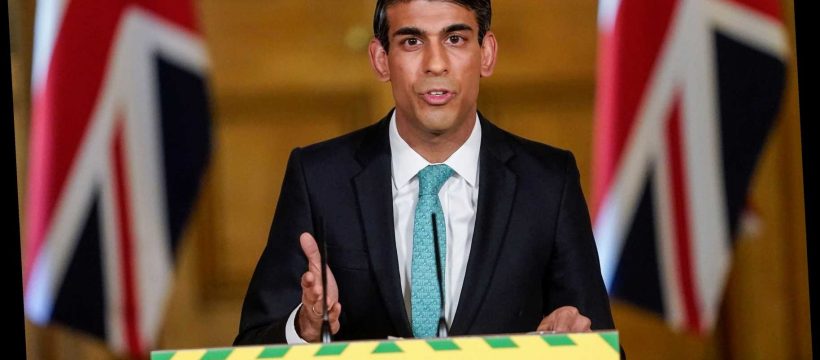NATIONAL insurance holidays for employers taking on new staff are among the plans the government is thought to be considering as it looks to boost the economy and get people back into work.
Employers currently pay 13.8 per cent towards employees' national insurance if they earn over a certain variable threshold – for most, it's if you're paid more than £169.01 a month.
⚠️ Read our coronavirus live blog for the latest news & updates
But the The Telegraph reports that the Treasury is thought to be considering waiving this for a period for firms taking on new employees.
A similar policy saw new businesses in certain areas of the UK starting up between June 22, 2010 and September 5, 2013 able to get national insurance holidays of up to £50,000.
It comes as chancellor Rishi Sunak warns of a "never-seen-before coronavirus recession" leaving permanent damage on the UK's economy, which has already shrunk by 5.8 per cent in March, according to the latest figures.
Benefit claims for jobseeker's allowance and for the searching for work element of Universal Credit jumped 70 per cent in a month to 2.1million in April.
What is furlough?
THE aim of the government’s job retention scheme is to save one million workers from becoming unemployed due to the lockdown.
Under the scheme, the government will pay 80 per cent – up to £2,500 a month – of wages of an employee who can’t work because of the impact of coronavirus.
Workers will be kept on the payroll rather than being laid off.
The government will pay the associated employer national insurance contributions and minimum automatic enrolment employer pension contributions on top.
The scheme has been extended to run until the end of September (although businesses will be asked to chip in from August) and can be backdated to March 1 2020.
It’s available to all employees that started a PAYE payroll scheme on or before March 1, 2020.
If you’re between jobs, have started at a new place of work or were made redundant after this date then you can ask your former employer to rehire you to be eligible for the scheme.
Employers can choose to top up furloughed workers’ salaries by the remaining 20 per cent but they don’t have to.
Firms who want to access the scheme will need to speak to their employees before putting them on furlough.
While on furlough, staff should not undertake any work for their employer during the scheme.
While 8.4million people have been placed on the government's furlough scheme.
But the government is also said to be looking at starting new infrastructure projects in order to create new roles.
This could include updating Britain's creaking broadband networks to fibre – something outlined in the Conservative manifesto.
Other options thought to be on the table include further benefit increases, raising the minimum wage, and guaranteeing the living wage for care workers.
Benefits went up in line with inflation for the first time in four years this April, while the national minimum and living wages rise each April.
But think tank the Institute for Fiscal Studies (IFS) says around 450,000 care workers earn less than the separate voluntary real living wage, as determined by the Living Wage Foundation.
The chancellor has also refused to rule out tax hikes for millions of workers to pay for coronavirus, despite the Conservative manifesto promising not to raise the rates of income tax, national insurance or VAT for five years.
Workers currently pay income tax at varying rates dependent on their salary on money earned above £12,500, while most pay national insurance at 12 per cent on top. The standard rate of VAT is currently 20 per cent.
But The Telegraph says any increases to taxes are thought to be on hold until after economic growth recovers.
The newspaper continues that measures are unlikely to be announced immediately as the government is closely watching how the economy reopens in the next few weeks.
But it says the chancellor is also considering moving this year's autumn financial Budget to July.
The Treasury declined to comment when contacted by The Sun, but did confirm it's still working towards an autumn Budget as usual.
Non-essential retailers had to close from March 23 when the UK went into lockdown but garden centres and homeware shops have since been allowed to reopen.
Meanwhile, outdoor markets and car dealerships are allowed to reopen from this week, while non-essential retailers are allowed to reopen from June 15.
Source: Read Full Article


